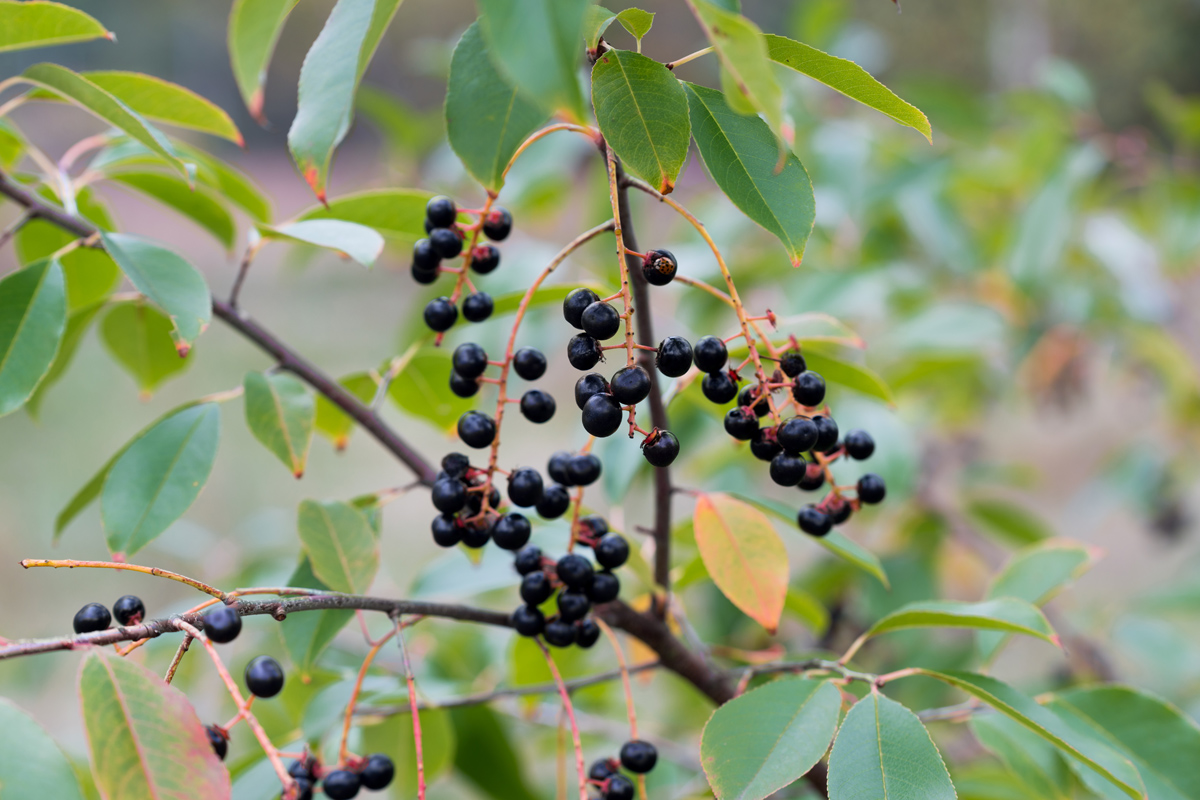
PruCycle
Extracts from the black cherry against tropical diseases
The black cherry (Prunus serotina) is considered an invasive neophyte. The shrub, which originates from North America and is over 30 metres tall, has very dense foliage, tolerates a lot of shade itself and thus displaces native grasses and herbs, but also tree species. This is why the black cherry also hinders forest regeneration.
Another essential characteristic: the black cherry possesses the chemical compounds amygdalin and prunasin in its cells. If the cells are damaged, for example by game browsing, they are broken down into glucose, hydrogen cyanide (prussic acid) and benzaldehyde by special enzymes. This leads to poisoning in animals that eat parts of the black cherry, especially because of the prussic acid. As a result, the shrub is only browsed to a very small extent, in contrast to other species – another competitive advantage.
Mechanical and chemical control is currently the most common technique to drive back the shrub. Since this is cost-intensive, men and women from various research institutes are now striving to subsequently add value to the biomass. Although it is possible to grow grapevine-quality stock of this Prunus species, it is hardly ever traded in this country. In North America, on the other hand, black cherry is traditionally considered a medicinal plant, for example against bronchitis.
Extracts against tropical diseases
This led to the project “Extracts from invasive neophytes as a source of novel active substances for the treatment of poverty-associated and neglected tropical diseases”, or PruCycle for short. A working group at the Justus Liebig University of Giessen wants to test the effects of black cherry extracts with regard to their pharmacological potential on pathogens of poverty-associated and neglected tropical diseases (NTDs). In addition to the Institute of Food and Environmental Research (ILU), the LOEWE centre DRUID (Novel Drug Targets against Poverty-related and Neglected Tropical Infectious Diseases) of the Institute of Virology at the Philipps University of Marburg is a cooperation partner.
The ILU’s tasks include obtaining the extracts and analysing the chemical structure of the essential active components. Since other Prunus species have already been described as effective against, for example, malaria-causing parasites, the research team hopes that the black cherry will produce novel active substances.
The aim of this project is to obtain extracts from the biomass of the black cherry and to develop an innovative processing option to make profitable use of the shrub species in Germany for the first time. In this way, several medicinal products could be developed. This additional utilisation is also intended to finance part of the removal of the black cherry from German forests.
Click here for the partners:
PROJECT DURATION:
01.12.2022 bis 30.11.2025
PROJECT SPONSOR:
Fachagentur Nachwachsende Rohstoffe e. V. (FNR)
GRANT-NUMBER-PN:
2220NR294
PROJECT MANAGER:
Dr. Kathleen Zocher
PROJECT PARTNER:
Justus-Liebig-Universität Gießen, LOEWE-Zentrum DRUID (Philipps-Universität Marburg)